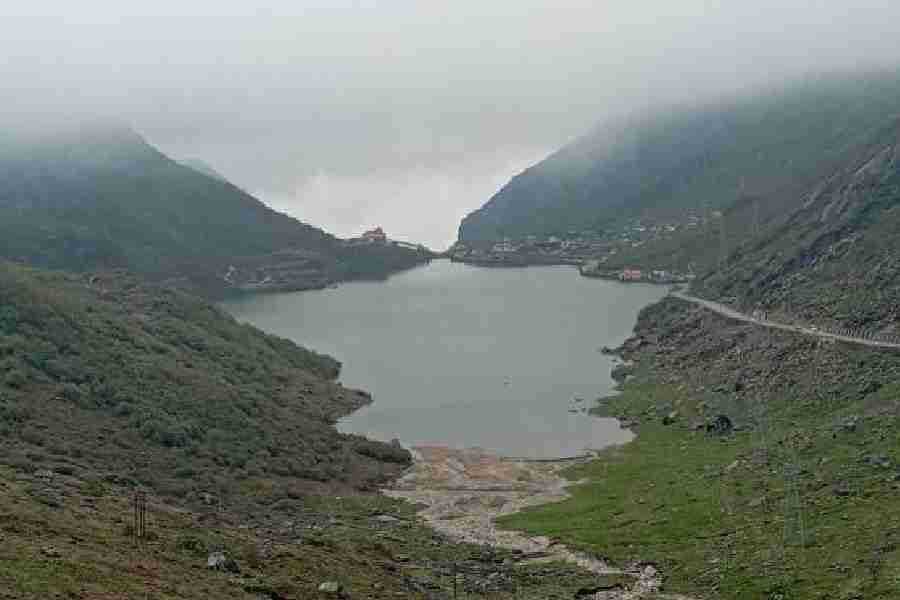The yak rests in grace. Majestic and humble. This animal is a symbol of resilience in lands that freeze. One such place is Changu Lake, also known as Tsomgo Lake. If on a sultry suffocating June day one wants to find out what 8°C feels like, one may visit this glacial lake located in Sikkim, near the China border.
I don’t fancy riding animals and clicking selfies, but the yak that I met, and the other yaks seemed to look earnestly at me, as if craving to ‘take me for a ride’ so that both its owner and it may benefit. It made me wonder how much this beast from the hills resembles the life and times of the natives.
There’s no dearth of tourism, but the two years of Covid and, now, the volatile political equation with China has dented trade and commerce between the nations. Tombi Bhutia, a shop owner in Changu Market expressed grief about not having enough supplies of products that once made her shop and her wear a prosperous glow.
She reasoned that the political tension between India and China is the cause why most products ranging from knives (made in China) and fridge magnets have started involuntarily wearing dust. But there is the genuine smile and the hope that one day business will be how it was, perhaps even more flourishing.
It’s interesting to learn that Tsomgo Lake is sourced from two words in the Bhutia language. ‘Tso’ means lake and ‘go’ means ahead. It’s located at an elevation of 3,753m. Legend has it that the colour of the lake predicted the future of the region. If the lake was dull and dark, it was believed that tough times would soon greet the people. The natives believe this place and especially this lake is a ‘jhakris’ which qualify the place to be a ‘healing place’.
One needs a permit to visit Changu Lake. The Tsomgo (Changu) Lake and Baba Mandir permits are issued at the Police Check Post. One can hire a taxi from Gangtok to reach the lake. It’s a pocket pinch of Rs 3,500. Ornamented by snow-capped peaks, alpine forests and meadows, this tourist spot in Sikkim is a visually stunning destination for those who appreciate the serene. The Bhutia and Lepcha communities consider the Changu Lake as a cultural identity. The place is also visited by pilgrims.
Devendra Bajoria of Maruti Travels in Calcutta educated me about the popularity of Changu Lake amongst adventure enthusiasts. Especially in the winters, when the lake freezes, tourists indulge in ice skating and ice sledding. The region around the lake is home to a wide range of flora and fauna. Sanjukta Deb, a systems analyst with an elder care unit in Calcutta and my co-traveller on this tour, is of the opinion that the biodiversity of the area appeals to nature lovers and wildlife enthusiasts.
A Sikkim trip without a walk down the Mahatma Gandhi Marg is incomplete. We devoured pork sausages and chilli beef and then enjoyed the view from Baker’s Café while sipping Americano. If one is traveling by train which halts at either Siliguri Junction or New Jalpaiguri railway stations, one should visit the Backyard Bistro in Siliguri to kick start or end the journey. Calcutta girl Suvechaya has ensured the place has amazing ambience and awesome food.
The yak doesn’t seem to complain. Despite the altitude or the circumstances, the yak seems to pledge grace and epitomise strength and character. The yak, in today’s socio-political environment is not just an animal, but a symbol. One hopes that trade and commerce and tourism will continue to keep these parts of the country alive and flourishing. Let’s keep learning resilience from the yak.
The author is founder, Theatrician, and faculty – theatre and film studies, Pathways World School, Gurgaon
